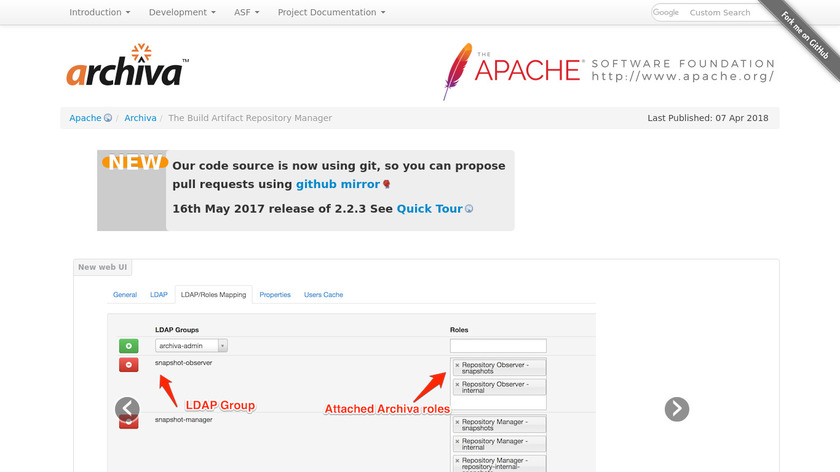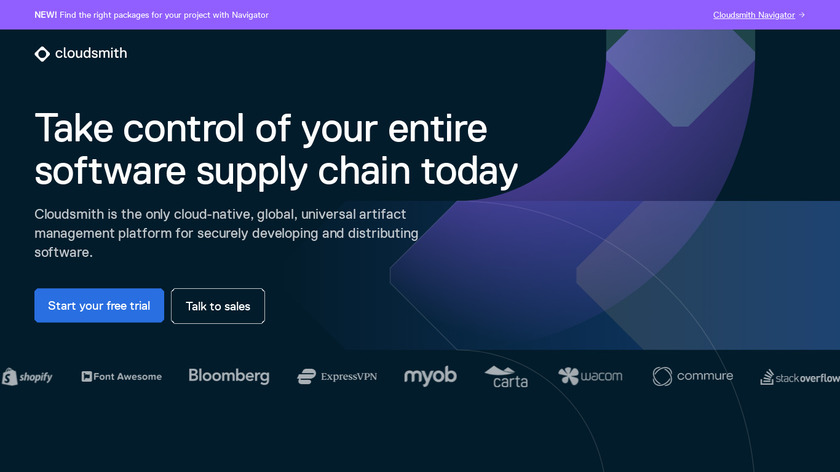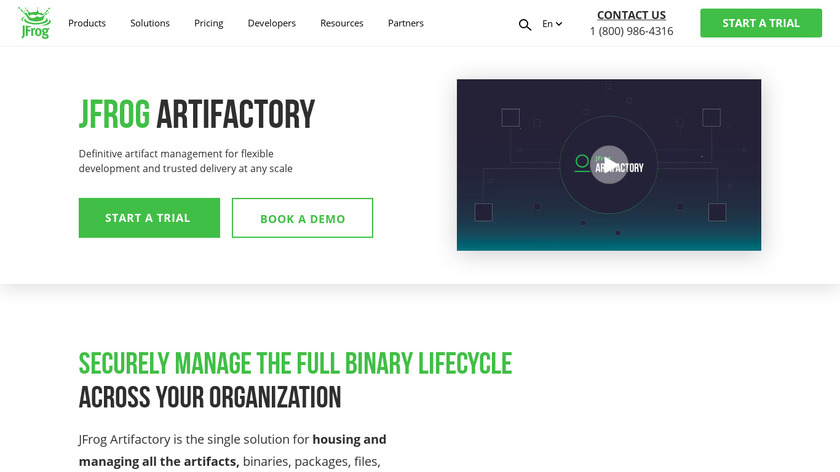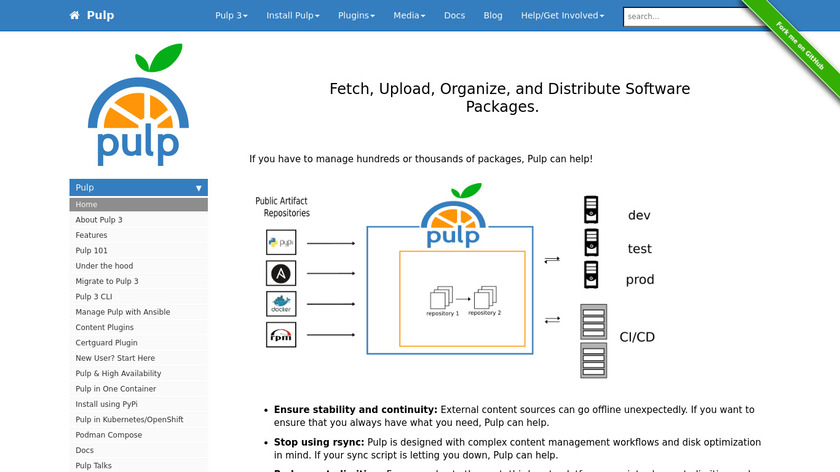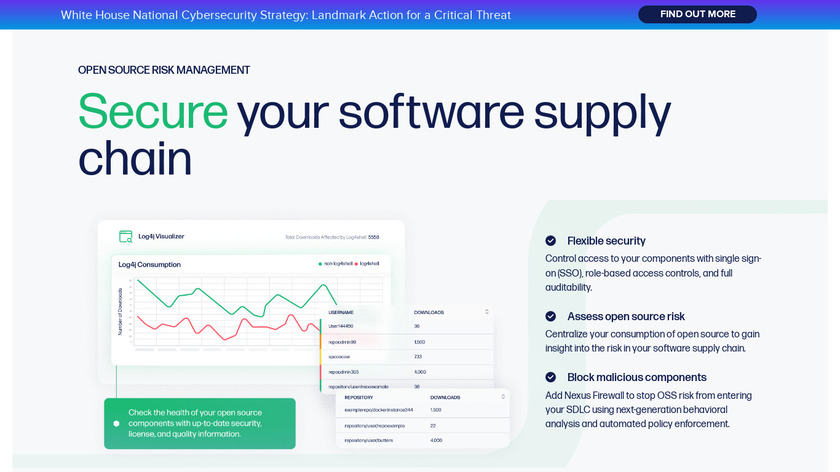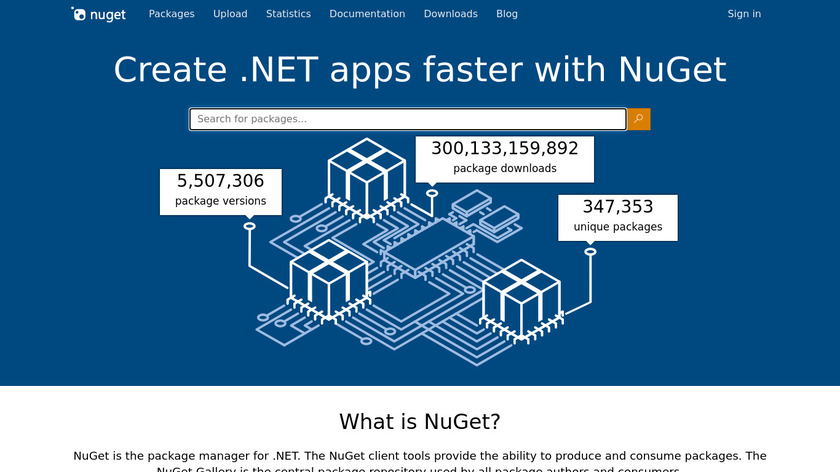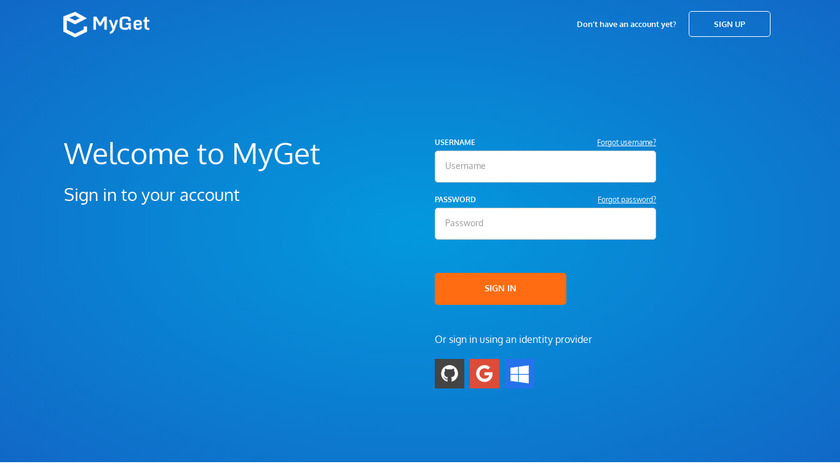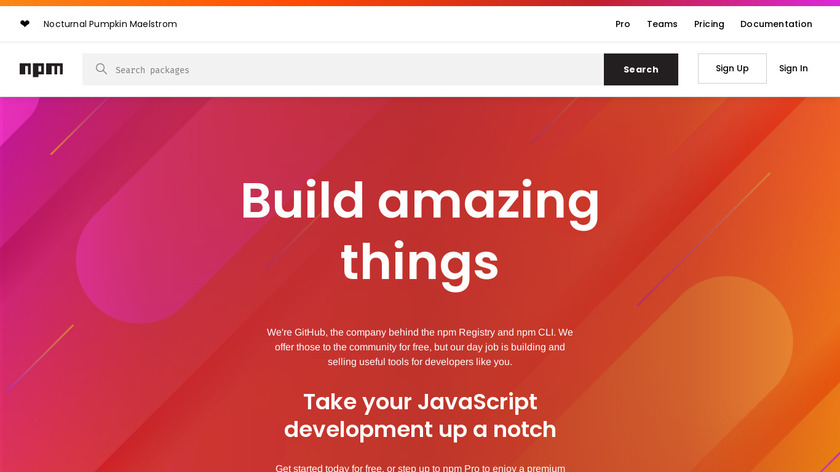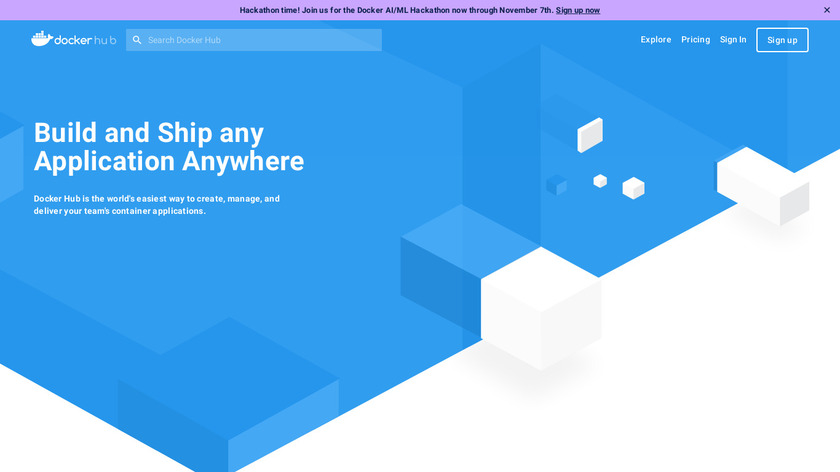-
Apache Archiva is an extensible repository management software.
Archiva, yet another tool from the Apache family of software offerings – It is an extensible Repository management software that provides its help in taking care of the enterprise-wide build artifact repository. An incoming request with a virtual repository or a repository group URL – Archiva would look for the requested artifact from the repositories under that specific group. Having said that, Archiva would look for the artifact under the specified group only when it has permission to do so. The very first resource that is found for the requested artifact would be returned as a response to the incoming request.
#App Reviews #Customer Feedback #Software Development
-
Cloudsmith is the preferred software platform for securely storing and sharing packages and containers. We have distributed millions of packages for innovative companies around the world.Pricing:
- Paid
- Free Trial
- Official Pricing
Cloundsmith Package is one of the best DevOps tools that is available in the Repository Management space and also ensures that levels up your DevOps enterprise-grade repositories as like Debian, Maven, Python, Ruby, Vagrant and more. It lets you focus on your product as Cloudsmith Package simplifies all your concerns related to the whole process in itself and handles the package management in the best way possible for you.
#Package Manager #Software Development #Developer Tools 1 social mentions
-
The world’s most advanced repository manager.
Artifactory is the enterprise-ready repository manager available today, supporting secure, clustered, High Availability Docker registries. JFrog is a universal artifact repository and distribution platform. A unique DevOps tool, JFrog Artifactory is a universal artifact repository manager that fully supports software packages created by any language or technology. Integrates with all major CI/CD and DevOps tools to provide an end-to-end, automated, bullet-proof solution for tracking artifacts from development to production. Remote artifacts are cached locally for reuse, eliminating the need to download them again and again.
#Git #Code Collaboration #Software Development 20 social mentions
-
Pulp. 223541 likes · 213 talking about this. http://www. pulppeople. com.
There are few core capabilities of Pulp as like syncing and publishing to the repositories have been implemented in a rather generic way so that it can be extended further by the plugins to support specific content types. Since the design of Pulp is flexible enough, Pulp can be extended further to nearly any type of digital content. The most important feature of Pulp is that it makes it very easy for the third-party plugins to be written and deployed separately from the Pulp platform. Any of the new plugins that are installed on Pulp, it detects these and activates them automatically.
#Software Development #Android #SaaS 9 social mentions
-
The world's only repository manager with FREE support for popular formats.
Sonatype Nexus is the repository that any of the teams would require as it is one of the most reliable sources for the components that are needed and when they are needed the most. With this tool in your DevOps pipeline, you can completely forget the past with stalled build because of missing components or unavailable components. It is built on the same foundation as that was built for the popular OSS solution Nexus Repository Pro which includes enterprise support. It provides features like Repository Health Check, Application Health Check which provides security and also licenses details for components that are found inside your applications or repositories.
#Software Development #Developer Tools #Repository Manager
-
The NuGet Gallery is the central package repository for NuGet, the package manager for .NET.Pricing:
- Open Source
NuGet is the official package manager for .NET managed by the Outercurve Foundation. The original purpose to have a repository manager is to organize on your binary components that the development team relies upon and to maintain it properly. The whole idea of committing these along with your source code beats the purpose of using any Repository Managers and hence NuGet comes into use. The NuGet workflow has been put in place to commit the packages folder into source control with the reasoning that if they don’t have NugGet, they might end up dumping all these binaries into the source control only for the reason to allow others to build the whole application code.
#Package Manager #Windows Tools #Front End Package Manager 38 social mentions
-
MyGet allows you to create and host your own NuGet feed.Pricing:
With that discussed, let us now take a look at the difference that is observed between MyGet and NuGet. With MyGet, there is a possibility to set up the feed less than 5 seconds and all this can be done without even setting up any of our own infrastructures. There is only one feed per account in NuGet whereas with MyGet you can have multiple feeds per account. It also allows you to delegate privileges to others without even sharing an API key as everyone would be having their own API key and secure access to MyGet.
#Development #Code Analysis #Code Coverage 1 social mentions
-
npm is a package manager for Node.Pricing:
There are three components to npm, they are the website, registry and the cli. The npm website is the place where developers discover packages, set up their profiles and also manage the other aspects of npm. The npm registry is the huge database that contains all the dependencies and stuff whereas the npm cli is the one that is used by most of the developers to interact with npm.
#Front End Package Manager #JavaScript Package Manager #Package Manager 58 social mentions
-
Docker Hub is a cloud-based registry service
The Docker Hub can be very easily defined as a Cloud repository in which Docker users and partners create, test, store, and also distribute Docker container images. Through the use of Docker Hub, a user can very easily access public, open-source image repositories and at the same time – use the same space to create their own private repositories as well.
#Web Servers #Developer Tools #Web And Application Servers 297 social mentions
Discuss: Repository Management Tools
Related Posts
Top 9 C++ Static Code Analysis Tools
incredibuild.com // over 2 years ago
Are Free, Open-Source Message Queues Right For You?
blog.iron.io // 8 months ago
NATS vs RabbitMQ vs NSQ vs Kafka | Gcore
gcore.com // 11 months ago
Best message queue for cloud-native apps
docs.vanus.ai // 4 months ago
Comparing Charles Proxy, Fiddler, Wireshark, and Requestly
dev.to // over 4 years ago
12 HTTP Client and Web Debugging Proxy Tools
geekflare.com // about 1 year ago









